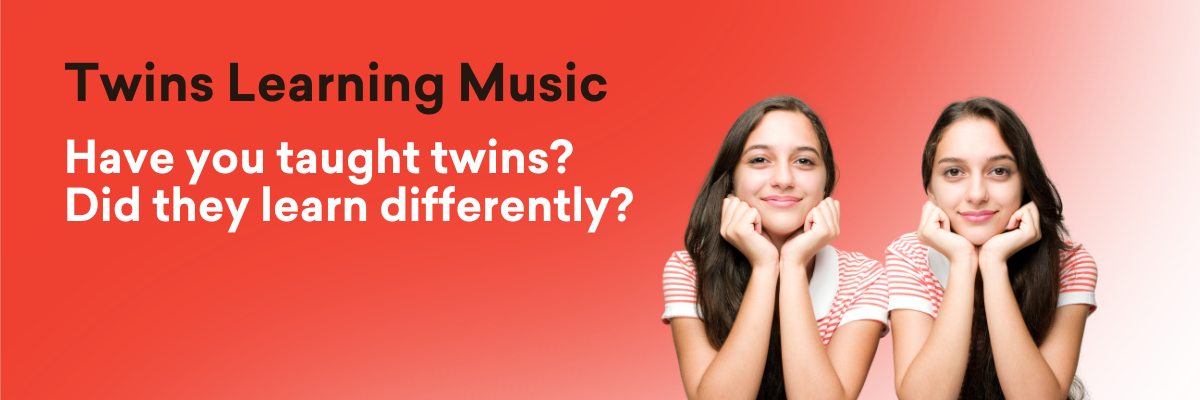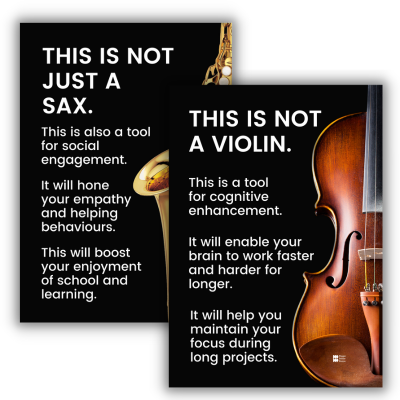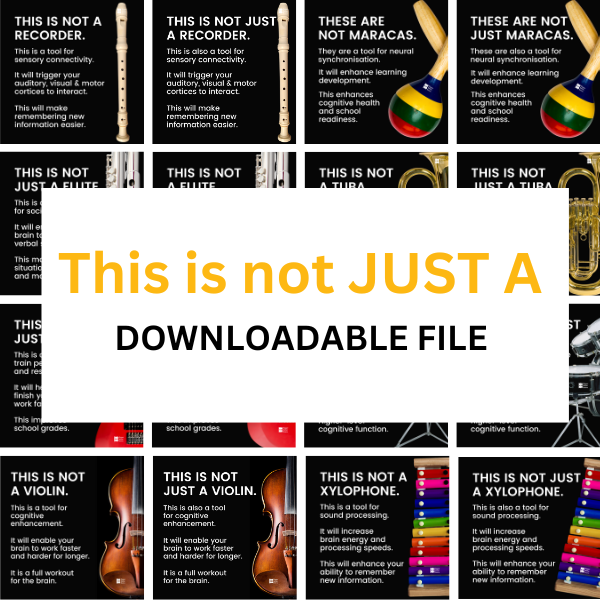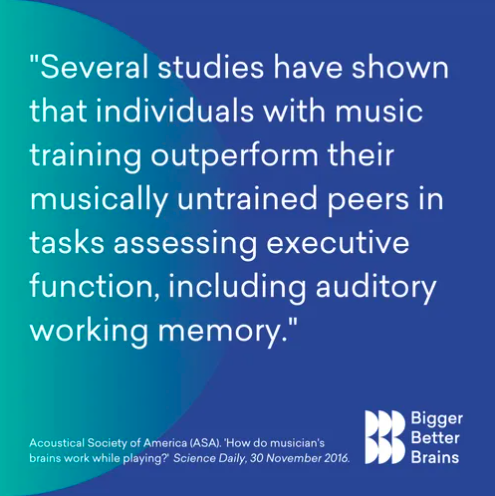Talk about a great experiment.
Researchers in Sweden surveyed 83 sets of monozygotic (identical) twins to find 10 pairs who fit the following criteria – only one sibling in each pair currently played a keyboard instrument (piano, organ, keyboard) and within the pair, a difference in total hours of music practice was at least 1000 hours.
Hey music teacher!
Did you know that Bigger Better Brains creates advocacy tools to help you demonstrate the lasting value of music education?
They found ten pairs. They measured the differences in four parts of the brains of each pair – auditory-motor network function, cortical thickness, cerebellar regional volumes and white-matter microstructure/fractional anisotropy. In other words, the parts of our brains where we process sound, some of the areas that impact on general intelligence and brain connectivity and consistency.
They found that the “musically active twins had greater cortical thickness in the auditory-motor network of the left hemisphere and more developed white matter microstructure in relevant tracts in both hemispheres and the corpus callosum.” In other words, greater auditory processing power which may extend to general intelligence and greater connectivity and consistency, especially across the brain hemispheres.
The researchers concluded, “In light of our findings, we conclude that even when controlling for genes and early shared environment, there can be observable neuroanatomical differences in both gray matter and white matter microstructure between individuals that differ vastly in musical training. It appears highly likely, therefore, that causal effects of training underlie a significant portion of the differences in neuroanatomy between experts and nonexperts.” and that “the findings reported here give legitimacy to the notion that extensive musical training furthers the development of the auditory-motor network to such an extent that we can observe the effects even at a macroanatomical level.”
Now go practise!





